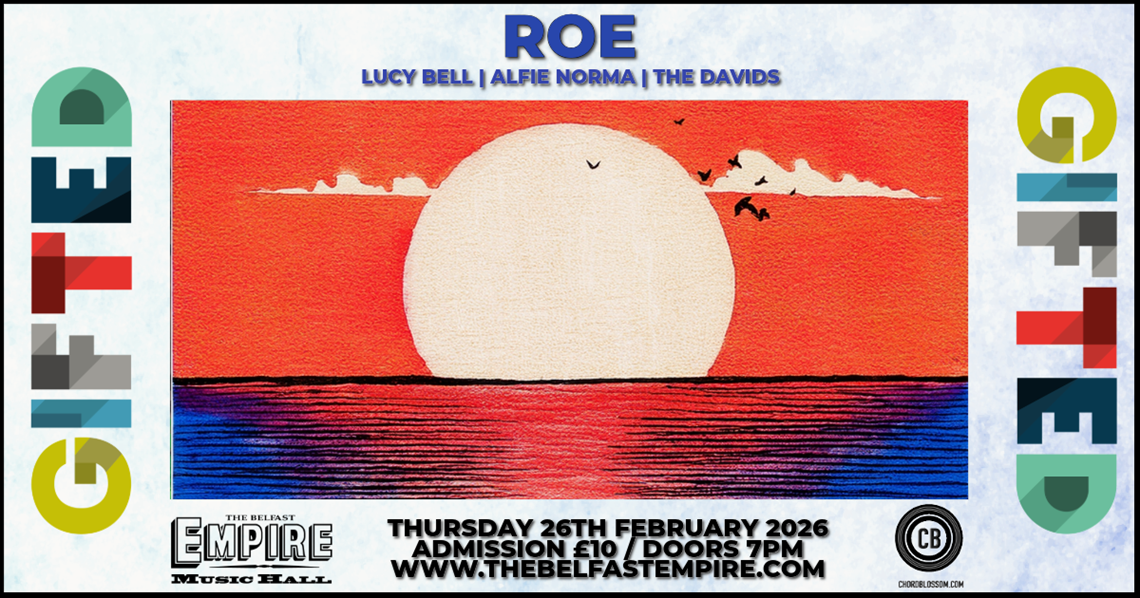Peter J. McCauley has spent much of lockdown watching RuPaul’s Drag Race with his wife. Aside from working on his latest LP Amnesty, the singer and multi-instrumentalist has already caught up to season 11. “I like to live in an alternate reality where my opinion on drag artistry matters,” he laughs. It’s a rare period of rest for the Belfast native who is more often found on the road, once touring these islands in a Transit van behind the drum kit for Mojo Fury, and more recently at festivals across the world as Rams’ Pocket Radio.
Under his former alias, McCauley released a string of EPs and singles and a concept album, Béton, in 2013. Four years ago, he decided to record under his own name and delivered Liminals, his first EP as Peter J. McCauley. Following a long stint on the road and recording documental album Voices of Belfast, two years of work has lead up to in the release of his first full length unrestrained by his former conceptual identity. Finished during the coronavirus lockdown in April, Amnesty represents a more reflective, personal approach to songwriting for McCauley and a draws inspiration from a return to everyday life in his home city after a whirlwind few years.

“I decided that I wanted to move on from doing a project that was quite conceptual in its nature, where there was a whole story about what the music had to be, a kind of ethos behind it,” he explains, “I thought, wouldn’t it be cool to just write songs and be a normal person writing them? Releasing under my own name has allowed me to feel like I don’t have to embody any ideas. I can just talk about my own personal experiences and let them just be that, there’s no delusions of grandeur or lofty ideas, elevating the status of any particular song or message, just ‘this is my experience and this is how I express myself’.”
The making of the album was an ongoing process which was accelerated by being stuck in the house, allowing the record to come together piece by piece. “I have a wee studio on the top floor of my house. We’ve got really nice neighbours who don’t mind me making loads of noise so it’s cool, we’re really lucky that way. I had recorded them [the songs] gradually, maybe about half the album had been recorded and then it was lockdown. I was getting creative – I wrote some more songs and thought it was going to be an EP, but they really worked with the other songs I had, so I put together an album that I felt worked and that said something.”
Moving on from the deconstructed pop of Rams’ Pocket Radio and the meticulous production of Liminals, Amnesty sees McCauley at his most honest and uninhibited. Soaring vocals marry dreamy piano numbers and electronic flourishes, with just a touch of old-fashioned showmanship. Even compared to his last EP, Peter J. McCauley’s sound is constantly evolving.
“You’re listening to one song and it’s got the production of about ten different songs. There’s not a verse in Liminals that is the same as the next one, so there’s a lot of stuff going on there. There’s a lot of experimentation with synths and recording techniques and developing my own recording skills in the process of that. This album [Amnesty] is a bit more direct in terms of the songs and pieces of music, there’s less distraction in terms of production. I tried to do something that was a bit more instinctive, more direct, so just telling the story of the music as opposed to coming at it being fascinated by a particular synth sound.”
Amnesty showcases some of McCauley’s most candid lyrics. On ‘Pony on the Fare’, he reflects on his experience of the Northern Irish music scene: “You know I’ve been around that block and washed up at 25” he sings over sparse keys and minimal synth beats. “I really like that line. That song was about a transition. I was thinking about the transition that I made from being in the little artist bubble where the machine is ticking around you and your sole thing is creativity and just being.
In my experience, it was a wild ride – it felt like I had to hop off in my mid-twenties. Something about it didn’t feel real, it didn’t feel sustainable and healthy, so that’s part of why I took a little break from it. But hopefully now with this more honest, maybe authentic approach, it’s a bit more of a sure path to take.”
McCauley draws inspiration not only from the local music scene, but from the people of Belfast and the city itself which is integral to the fabric of his music. The most romantic track on the album, ‘Anywhere My Love Will Go’, was born from his time working with groups of older people in the community for a project called Music and Memories. Stories and jokes were collected from elderly residents in day centres in East and West Belfast and old party pieces were reimagined as modern experimental works with new arrangements.
“I found myself doing these little gigs and workshop sessions with them and I was learning lots of songs from the 1920s to the 1950s. I really came into contact with a lot of different styles of music from that era beloved by people of a certain age. I’d been listening to a lot of those old tunes, so the sound of that song was born out of me playing with and learning lots of old covers and it was influencing my writing a little bit. Lyrically, it’s about memories and the buoyant idea that there are things that divide us, but there are always things we can have in common.”
The rich strings and beautifully simple melody of ‘Anywhere My Love Will Go’ melt into the brooding piano of ‘Reverie’ and ‘Dreaming’. Whilst you might be forgiven for thinking that lockdown helped to provoke this introspection, it was by pure coincidence that the songs came into being much later than other tracks on the record.
“I can’t explain to you why I sat down and wrote that, but those two came at the same time. There always are those moments where you have a little ponder and your thoughts go somewhere else and it’s quite liberating in a way, to go with it,” McCauley says of his thought process. “‘Reverie’ came first, it was the piano piece and I thought, there is a place I can take this that it can be a more conventional type of song, there is a lyric that’ll fit with this, but I didn’t want to put it over that song. It felt kind of separate. I allowed myself to do that. Part of the theme of the album is this amnesty, just go for it – put songs out, it’s cool. You could spend ages labouring over a piece because this bit isn’t perfect or you’re not able to stand over it. This comes back to the theme of the album – let yourself finish the work. That’s the biggest obstacle, not ‘oh, what chord do you go to for the chorus?’, that’s easy, it’s letting yourself do it and be wrong or do it and be right or do it and no one cares or everyone loves it.”
McCauley’s newfound unrestricted approach to making music has helped him to let go of the compulsion to attach meaning to all his lyrics and to embrace his inability to be pigeonholed: “Whenever people ask me what kind of music I make, I just say pop music, but that can mean so many different things and it’s quite nice to be open-ended in that way. The way I put together my lyrics, some parts are stream of consciousness, some parts are more me trying to think of metaphors or describe things, events in life, some parts of the songs are everyday phrases – I like to mix that all together.
There probably is a formula somewhere, but in its essence, it’s me sitting at the piano and singing random vocalisations and seeing where that takes me. Sometimes there will a lyric that’s resonating so much that I think I can explore it through song or music. It’s quite different every time. Though there are things that help me if I’m struggling to finish, wee techniques that I can use to help myself get to the end of a song or to finish a piece of music,” he shares. Those techniques, however, are closely-guarded secrets. “I think the trick is to make sure you’ve got more than one!”
The themes of forgiveness and giving yourself the freedom to get it wrong tie Amnesty together. “I’m thinking more library amnesty than Amnesty International,” the singer jokes, “This is the day when I get to just bring the old songs that I’ve been working on for the past couple of years and new songs and make a statement. I like to push the idea that you can go for it, to anyone. People who are artists, people who do whatever, just go for it, allow yourself to do what you do.”
From having a track featured in an episode of Made in Chelsea to finding a fan in Irish President Michael D. Higgins, McCauley has come a long way from his first paid gig playing the tambourine in a church at fourteen and the questionable haircuts of his school emo band. Amnesty is a culmination of his years in the music business, ticking aspirations off his bucket list touring the globe, working in production and theatre and the local community. Amnesty sounds like the record he’s always wanted to make.
But ultimately, what does Peter J. McCauley want listeners to take away from it? “One of the lyrics on ‘Easy If You Don’t Care’ – “Give me grace and I’ll keep giving you a little / It gives you truth if you stay true to it” – that’s a big part of the idea underneath this album; have grace for yourself, have grace for others. In terms of me letting myself write songs and release them, give yourself a bit of grace and just let it go. In Northern Ireland, we need that. Online, we need that. Conversations need grace, debates need grace if we’re to make progress. But it only works if you really are true to that idea, if you’re letting it go.”








